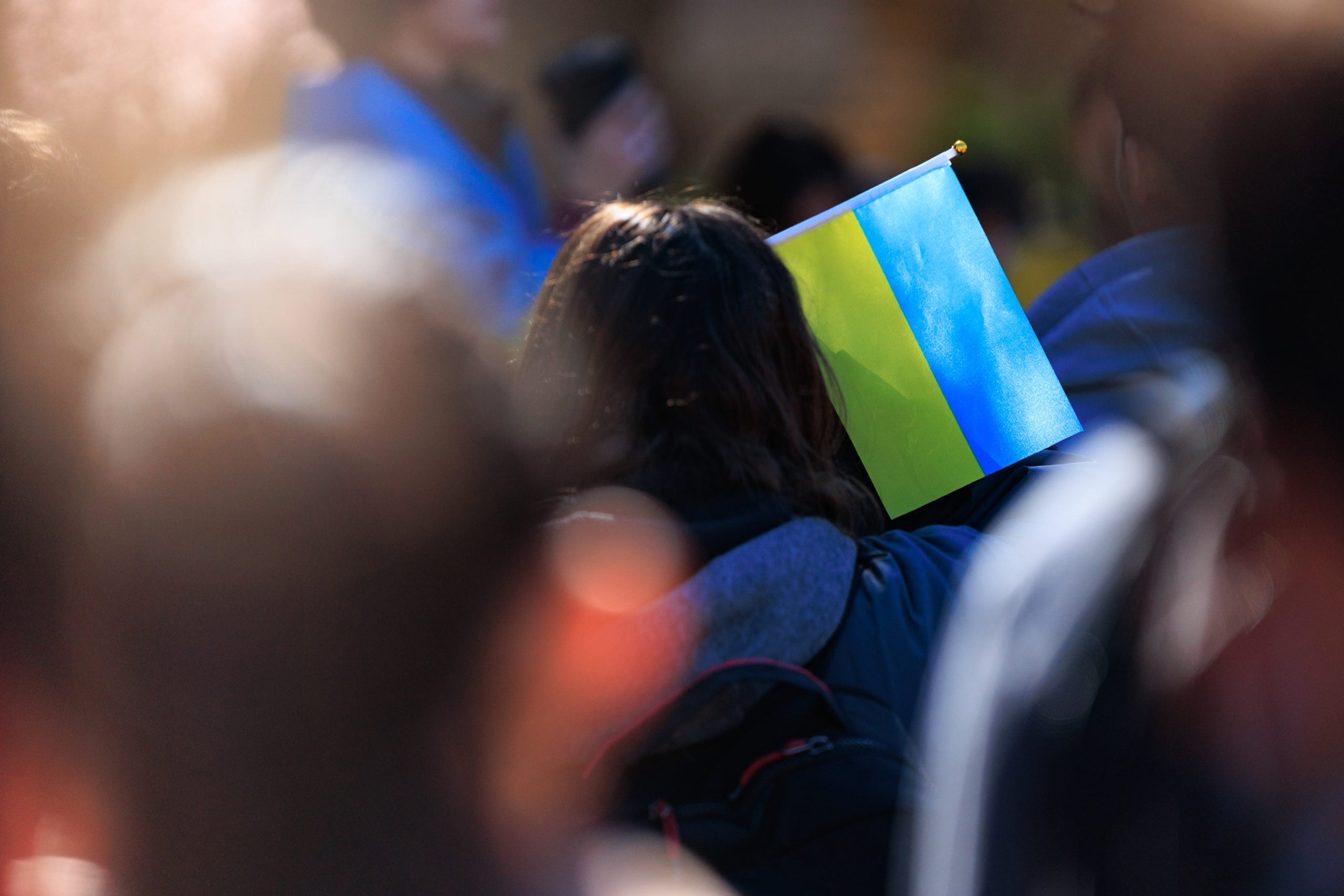A week after Russia invaded Ukraine, the student body is still awaiting a campus-wide message from University leadership. Ukrainian students and their allies have expressed confusion and frustration over the silence.
President Marc Tessier-Lavigne has made some remarks on the subject, notably raising concerns about the invasion in remarks to the Faculty Senate. Tessier-Lavigne also shared a statement with students who attended a panel on Ukraine, and the University circulated a statement from him on Instagram.
“The unprovoked, full-scale invasion of Ukraine by Russia, and the attack it represents on democracy, is beyond shocking, and recent reports of the targeting of residential neighborhoods even more so,” Tessier-Lavigne wrote on Instagram.
While concerned students have acknowledged these messages, they’re still hoping for an official, campus-wide message that condemns Russia and details the actions and support the University will take to support Ukraine.
A University spokesperson wrote in a statement to The Daily that the University rarely makes statements on international issues.
Fifth-year Ph.D. student and Ukrainian Students Association group member Damian Pavlyshyn said that while “the lack of a strong statement from Stanford leadership is low” on his list of priorities, the silence remains at the back of his mind.
“I have become very used to receiving messages signaling Stanford’s support for causes that the leadership considers to be important,” Pavlyshyn wrote to The Daily. “That is why it is hard to interpret silence as anything but a signal that they do not consider the current invasion to be an issue of substantial moral importance.”
Igor Barakaiev ’24, who is also taking part in student advocacy in support of Ukraine, said he has also noticed the lack of a campus-wide statement from the University, but he doesn’t feel any “strongly negative emotions towards Stanford’s administration” for this. Student advocates have repeatedly reached out to the University asking them to publish a statement, according to Barakaiev.
Barakaiev wrote in an email to The Daily that he was “confused as to why an unprovoked war killing thousands of civilians in a country which many students at Stanford come from does not warrant a statement (as compared to other issues that do).”
Students also contended that delayed reactions to national or world events that also impact the Stanford community are unusual for the University. President Marc Tessier-Lavigne sent a statement on Jan. 6, 2021 only a few hours after the Capitol riots. The University was also quick to release a statement after the 2020 racial justice protests.
University spokesperson E.J. Miranda wrote in a statement to The Daily that “the University does not frequently issue statements about international conflicts but makes judgments about when to do so. We do use the Stanford Report e-newsletter, which this year is being delivered to all students as well as to all faculty and staff, to share important content with the University community in addition to using individual emails.”
In the wake of the Israeli occupation of Palestine in May 2021, President Marc Tessier-Lavigne shared remarks with the Stanford community in which he emphasized the value of discussing divergent views. He did not, however, release a statement on the University’s stance.
The Stanford Report has published a few stories on Russia’s invasion of Ukraine, including a discussion with Stanford Scholar Steven Pifer on understanding the war and a piece on the rally for Ukraine at White Plaza last Friday.
Several other universities have put out statements regarding the war in Ukraine. Princeton University’s president Christopher Eisgruber published a statement to the Princeton community on Feb. 28 in which he condemned the invasion, called on the Biden administration to grant temporary protected status — an immigration status provided to nationals of certain countries experiencing problems that make it unsafe to be deported to those countries — to Ukranians and identified resources available to students. And on March 4, Northeastern University’s president Joseph Aoun issued a statement to the student body, vocalizing the university’s support for Ukraine and students in need.
Pavlyshyn especially praised MIT’s statement on Ukraine, which included steps the school is taking to care for its community members and plans to sever ties with the Skolkovo Institute of Science and Technology, a graduate university on the outskirts of Moscow that MIT developed in conjunction with the US State Department and the Russian government.
“Much better than any statement is action,” Pavlyshyn wrote. “[MIT’s work adds] real, tangible weight to [their] statement that it considers Russian military actions to be unacceptable. Compared to this, Stanford’s lack of meaningful response speaks for itself.”
Miranda did not directly address student criticisms about other statements from peer institutions on the war.
Students hope to see more than just verbal solidarity with Ukraine if a statement is to be made.
Sonya Epifantseva ’25, who spoke at Friday’s rally for Ukraine, wrote in a statement to The Daily that she wants to see the University launch “more initiatives in the future and announce actions like fundraising for people forced to leave the country, divestment of Russian companies and more support for students affected by the conflict.”
Pavlyshyn hopes that a message from Stanford on the war would clearly denounce Russia.
“The worst thing that Stanford can do is equivocate and support generic and uncontroversial ideas of ‘peace’ and ‘an end to the war’ without explicitly condemning Russia,” he said.
